Filter by

Artificial Chemistries
The field of Artificial life (ALife) is now firmly established in the scientific world, but it has yet to achieve one of its original goals: an understanding of the emergence of life on Earth. The new field of artificial chemistries draws from chemistry, biology, computer science, mathematics, and other disciplines to work toward that goal. For if, as it has been argued, life emerged from pirmi…
- Edition
- -
- ISBN/ISSN
- 9780262329460
- Collation
- 1 online resource (xv, 555 pages) :illustrations (some color)
- Series Title
- -
- Call Number
- -
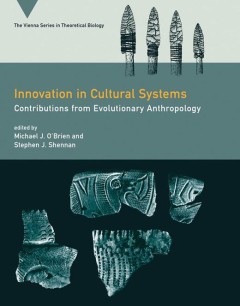
Innovation in Cultural Systems: Contributions from Evolutionary Anthropology
Here, leading scholars offer a range of perspectives on the roles played by innovation in the evolution of human culture. The contributors consider innovation in biological terms discussing epistemology, animal studies, systematics and phylogeny, phenotypic plasticity and evolvability, and much more.OCLC-licensed vendor bibliographic record.
- Edition
- -
- ISBN/ISSN
- 9780262259101
- Collation
- 1 online resource (xi, 284 pages) :illustrations.
- Series Title
- -
- Call Number
- -
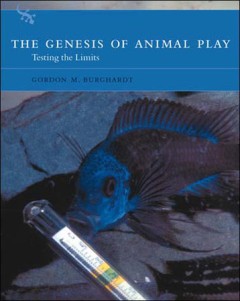
The genesis of animal play : testing the limits
In The Genesis of Animal Play, Gordon Burghardt examines the origins and evolution of play in humans and animals. He asks what play might mean in our understanding of evolution, the brain, behavioral organization, and psychology. Is play essential to development? Is it the driving force behind human and animal behavior? What is the proper place for the study of play in the cognitive, behavioral…
- Edition
- -
- ISBN/ISSN
- 9780262269551
- Collation
- 1 online resource (xvi, 501 pages) : illustrations
- Series Title
- -
- Call Number
- 570 BUR g
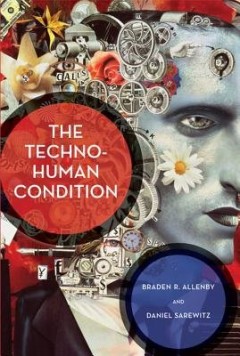
The techno-human condition
A provocative analysis of what it means to be human in an era of incomprehensible technological complexity and change.OCLC-licensed vendor bibliographic record.
- Edition
- -
- ISBN/ISSN
- 9780262295666
- Collation
- 1 online resource (xi, 222 pages) :illustrations
- Series Title
- -
- Call Number
- -

Evolution, Gender, and Rape
"A Bradford book."Multidisciplinary critiques of the notion of rape as an evolutionary adaptation.OCLC-licensed vendor bibliographic record.
- Edition
- -
- ISBN/ISSN
- 9780262285155
- Collation
- 1 online resource (vi, 454 pages) :illustrations
- Series Title
- -
- Call Number
- -
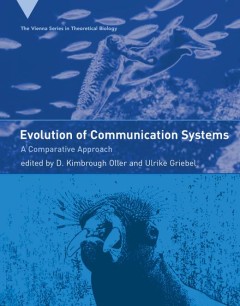
Evolution of Communication Systems: A Comparative Approach
Laying foundations for an interdisciplinary approach to the study of evolution in communication systems with tools from evolutionary biology, linguistics, animal behavior, developmental psychology, philosophy, cognitive sciences, robotics, and neural network modeling.The search for origins of communication in a wide variety of species including humans is rapidly becoming a thoroughly interdisci…
- Edition
- -
- ISBN/ISSN
- 9780262281010
- Collation
- 1 online resource (x, 338 pages) :illustrations.
- Series Title
- -
- Call Number
- -
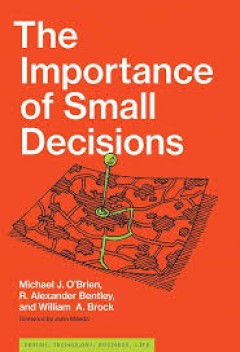
The importance of small decisions :how culture evolves
How people make decisions in an era of too much information and fake news. Humans originally evolved in a world of few choices. Prehistoric, preindustrial, and predigital eras required fewer decisions than today's all-access, always-on world of too much information. Economists have largely discarded the idea that agents act rationally and the market follows suit. It seems that no matter how sma…
- Edition
- -
- ISBN/ISSN
- 9780262352536
- Collation
- 1 online resource (160 pages) :illustrations.
- Series Title
- -
- Call Number
- -
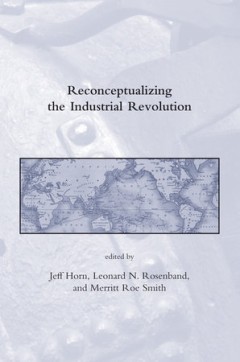
Reconceptualizing the Industrial Revolution
Closely linked essays examine distinctive national patterns of industrialization.This collection of essays offers new perspectives on the Industrial Revolution as a global phenomenon. The fifteen contributors go beyond the longstanding view of industrialization as a linear process marked by discrete stages. Instead, they examine a lengthy and creative period in the history of industrialization,…
- Edition
- -
- ISBN/ISSN
- 9780262289504
- Collation
- 1 online resource (vi, 356 pages).
- Series Title
- -
- Call Number
- -
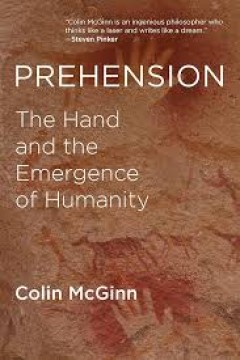
Prehension: The Hand and the Emergence of Humanity
"This book is a hymn to the hand. In Prehension, Colin McGinn links questions from science to philosophical concerns to consider something that we take for granted: the importance of the hand in everything we do. Drawing on evolutionary biology, anatomy, archaeology, linguistics, psychology, and philosophy, among other disciplines, McGinn examines the role of the hand in shaping human evolution…
- Edition
- -
- ISBN/ISSN
- 9780262331043
- Collation
- 1 online resource (ix, 191 pages)
- Series Title
- -
- Call Number
- -
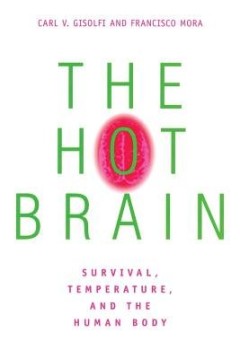
The Hot Brain : Survival, Temperature, and the Human Body
The book traces the story of the brain throughout evolution and shows how the control of body temperature as a survival mechanism was achieved. From the first unicellular life on Earth, living things have had the capacity to sense heat and cold and to avoid extreme temperatures. With the development of a bigger brain and a constant body temperature, mammals were able to change their habitats…
- Edition
- -
- ISBN/ISSN
- 9780262273886
- Collation
- 1 online resource (286 pages)
- Series Title
- -
- Call Number
- 613 GIS h
 Computer Science, Information & General Works
Computer Science, Information & General Works  Philosophy & Psychology
Philosophy & Psychology  Religion
Religion  Social Sciences
Social Sciences  Language
Language  Pure Science
Pure Science  Applied Sciences
Applied Sciences  Art & Recreation
Art & Recreation  Literature
Literature  History & Geography
History & Geography